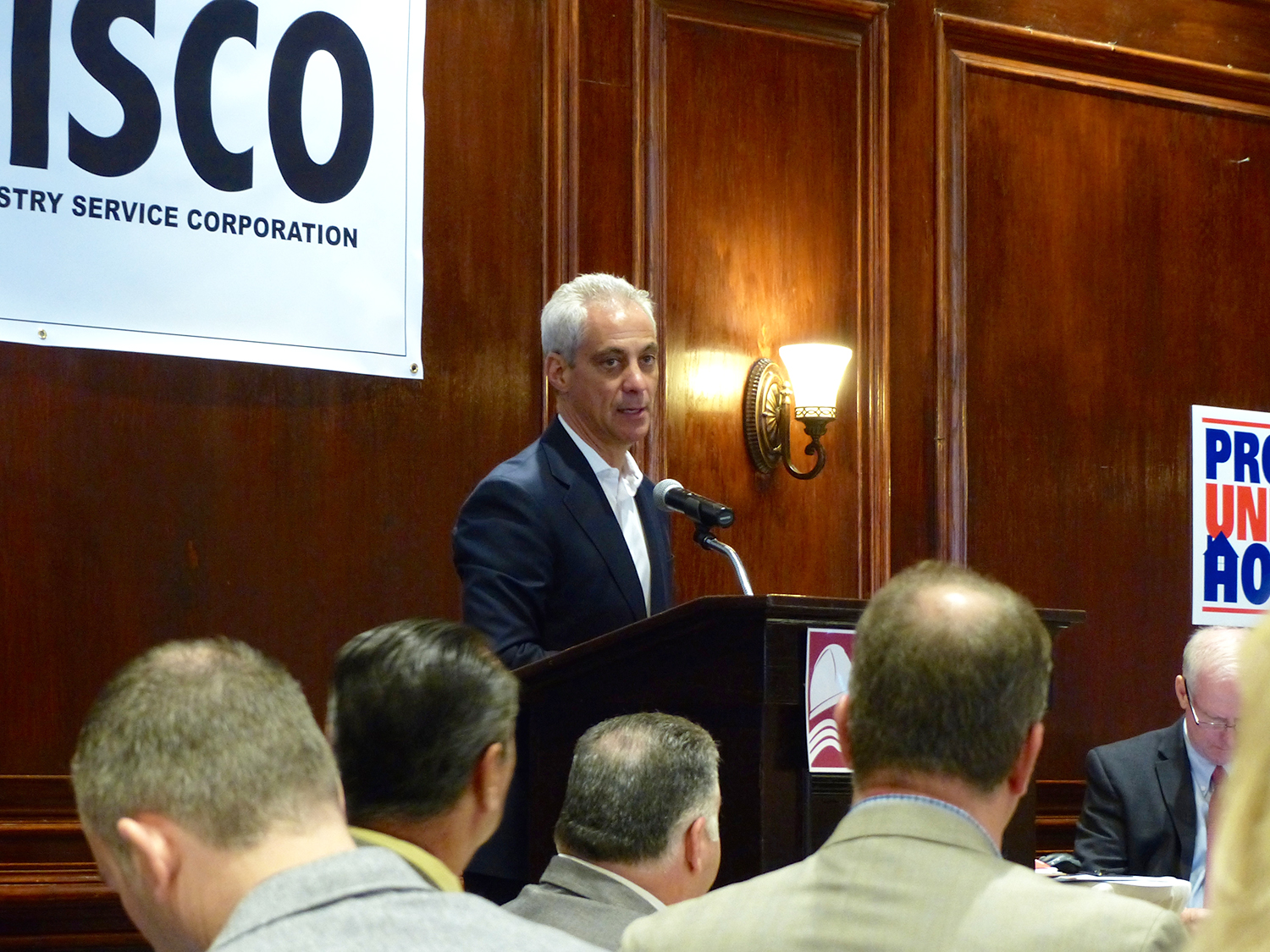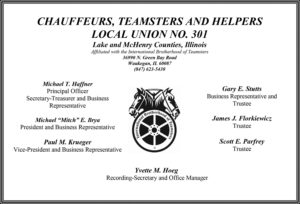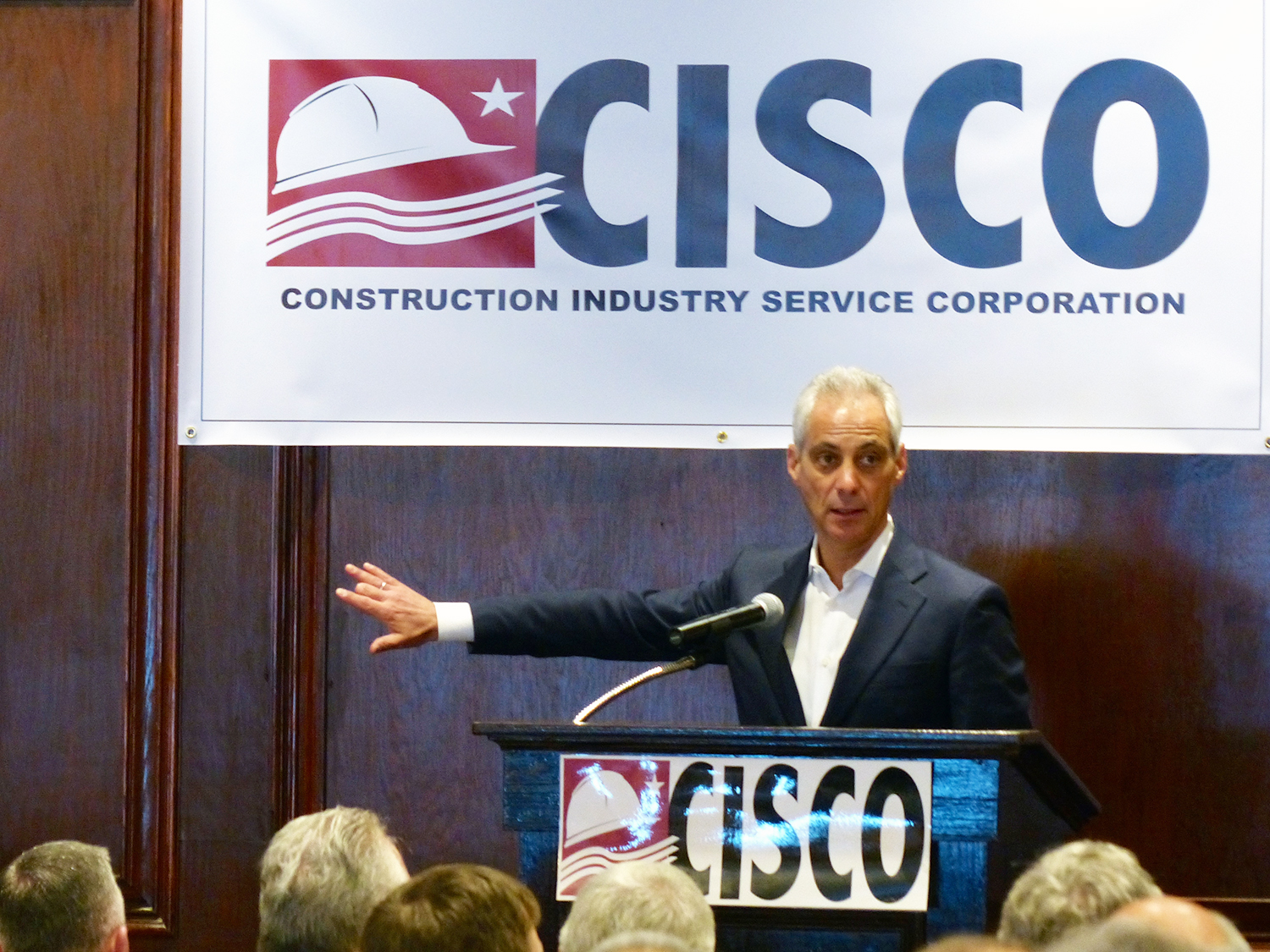
Under Chicago Mayor Rahm Emmanuel’s leadership, Chicago has seen a construction renaissance, hosting a record number of building permits, a billion dollar renovation of CTA infrastructure, as well as the billion dollar-plus redevelopment program for both Navy Pier and the McCormick Square neighborhood. Jennifer Rice/staff photographer

By Jennifer Rice
Managing Editor
Thursday, April 27, 2017
Email Jennifer Rice at: jen@foxvalley
labornews.com
CHICAGO — In recent years, Chicago has become first in a lot of areas.
In the short list of accomplishments, Chicago is No. 1 for corporate relocations, as well as direct foreign investments. In fact, Chicago’s economy grew faster than the United States of America and faster than New York and D.C.
Chicago Mayor Rahm Emmanuel pointed out Chicago’s successes aren’t done with Wall Street or the federal government. “It’s the men and women that make up this room driving that economic growth,” he said to applause.
Emmanuel’s audience didn’t have to be convinced by his remarks. They were members of Construction Industry Service Corporation (CISCO), which makes up signatory contractors and their members.

Advertisement
CISCO Executive Director Dan Allen added another Chicago accomplish. “Chicago was recently named as a top city for the most profitable start up companies in the country.
To put that into construction terms — the city had a post-recession record of 48 crane permits operating in 2016. “Each crane represents hundreds of union construction jobs helping to revitalize middle-class families,” Allen explained.
Emmanuel was CISCO’s keynote speaker for its 29th annual Luncheon.
Under Emmanuel’s leadership, Chicago has seen a construction renaissance, hosting a record number of building permits, a billion dollar renovation of CTA infrastructure, as well as the billion dollar-plus redevelopment program for both Navy Pier and the McCormick Square neighborhood.

While speaking at a recent CISCO event, Chicago Mayor Rahm Emmanuel said making Chicago an economic success makes everyone involved a winner. Jennifer Rice/staff photographer
Emmanuel called Chicago’s economic strategy the 5 T’s: talent, training, transportation, technology and transparency.
“I fundamentally believe we cannot have a 21st century economy running on a 20th century foundation. Every investment you make an infrastructure leads to greater economic growth,” Emmanuel said. That growth in Chicago is done with the best trained, best educated workforce in the building trades, he added.
Acknowledging differences, the mayor discussed the conflict between his office and the building trades, but he hopes it’s in the past. “I wasn’t [the building trades] choice in 2011. Straight up — I wasn’t. They weren’t sure what they were getting. They’re still not sure,” he said to laughs.
There were lawsuits over McCormick Place and heated meetings with leaders of various building trades. But in the end, both sides, and the City of Chicago, came out winners.
“It was because Labor was my partner in solving a problem, removing a cloud, and helping us bring business to McCormick Place,” he explained.

